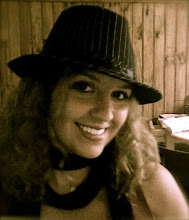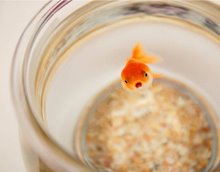It was exactly how these evenings should be.
A trash-filled street. A dingy, narrow staircase. An open door. An Old Man and The Future, eager to hear the past.
We entered the apartment and settled into a couch along the back wall. My eyes slowly scanned the room, soaking in each decoration praising an Indian god. They were beautiful, mysterious. The books were all in pursuit of Sri Aurobindo. I wondered what lay inside.
He had official business to discuss with his grandson, but tonight was not the night. The question emerged: “How did you leave Pakistan?”
The old man smiled and sighed. He was survivor. He had stories to tell. The two of us clung to the edge of the couch for the next two hours witnessing an incredible adventure unfold.
If only it were my story to tell! Here was a man at 15 who boldly took a train to watch India gain its independence. While on the train shit hit the fan, and he found his life in danger; wild, hate-filled Muslim mobs stormed the cars in pursuit of Hindus, ready to kill and ravage.
Imagine: a boy standing in the train car amongst strangers. Blood-thirsty civilians rip people from the train and murder them before an audience of men, women and children. Blood is everywhere. Injured bodies cling to the bunks. The murderers come for him and his friend, and they hide behind the one Muslim prayer and scattered words they know. Having come from the North, their dress helps their guise.
The murderers look them up and down, unsure of where to place the maybe-Hindu boys. “We’ll come back for them!” shouts one, and they rush to satisfy their lust for blood in the next cart. The boys hide amongst the dead and the bloody.
But the murderers have not forgotten them. Some time later—minutes, hours… does it matter? It must have felt like long, painful days for the youth—they returned, guns in hand, ready to kill. “Where are they?!”
After a brief search, one of the mob put a hand on the leader’s shoulder and sighed: “Maybe we’ve had enough for one day.”
The boys were spared.
Until they neared Delhi, and the Hindu mobs emerged to kill all the Muslims. The same scene of scattered blood, guts, betrayal and rage beyond control. Imagine the fear in the youth; having just passed as Muslims, could they now prove they were in fact Hindu?
Thankfully circumcision says it all.
So the boys made it to Delhi. They had no way to talk to their families, no way to tell them they were ok. They watched India gain independence amongst a fiery backdrop, red with blood. They survived.
His reunification with his family was an equally exciting story. He breezed over the life in Bombay during which he supported everyone with odd jobs and adventure. He told us how opportunity appeared on the doorstep while he was sawing a piece of iron and whisked him away to England, where he received training and met his wife.
Then back to India. He talked about discovering the Ashram in Pondicherry and falling so in love with Auroville he wanted to help build it. He became an ambassador of sorts and spoke of his political pursuits around spiritual India. He talked about incredibly moving meetings with the mother. His words were captivating, and we sat on the couch engrossed as if watching an adventure film.
At one point, as he recounted his last request to the Mother to join Auroville, his frail body moved to the bookcase and stiffly crouched to reach a worn text in the back corner of the bottom shelf. “This is what she gave me,” he said, unfolding the pages to show us a faded flower pressed within. “I didn’t understand.”
“What is it?”
“Acceptance.”
And here he is.
I’m not doing his words justice. I can’t this late at night, filled with this excitement and energy. But it makes me realize how amazing that generation was, and how spoiled we are. At 15 I wasn’t facing scenes of mass murder and upheaval; I was flirting with boys and figuring out how to entertain myself in the safest hometown imaginable. I was sheltered and protected. He was surviving. Thriving. Building.
And they all were. I think of my ancestors in France and their stories of WWII. Face-to-face with death, they were clever enough to survive and save. After the war, they were builders.
This old man looked at his grandson and saw a builder. “Our time is over,” he said of his generation. “It’s up to you guys to keep the dream of Auroville happening.”
They will. The Past is filled with amazing adventure stories of survival; the Future will be filled with equally amazing people overcoming different kinds of obstacles. I have no doubt.
They promised to talk business next time.
Next time.
Another opportunity for an old man to spend cherished time with a grandson. I thought of Anthony Ferris in Broken Wings, when he writes of how eager the young man was to hear the old man stories… not for the stories, but for the old man.
“An old man likes to return in memory to the days of his youth like a stranger who longs to go back to his own country. He delights to tell stories of the past like a poet who takes pleasure in reciting his best poem. He lives spiritually in the past because the present passes swiftly, and the future seems to him an approach to the oblivion of the grave.”






































